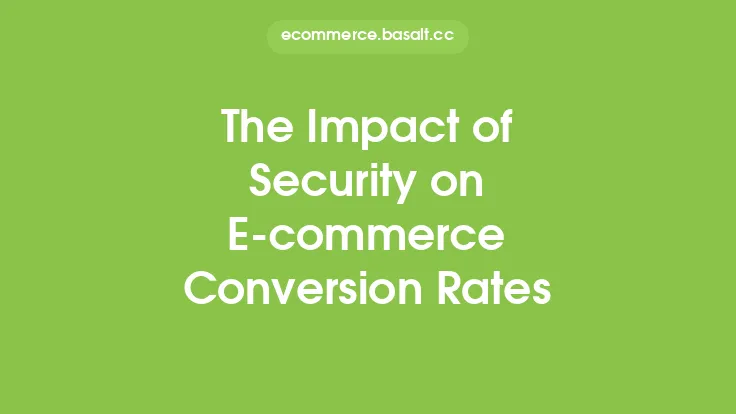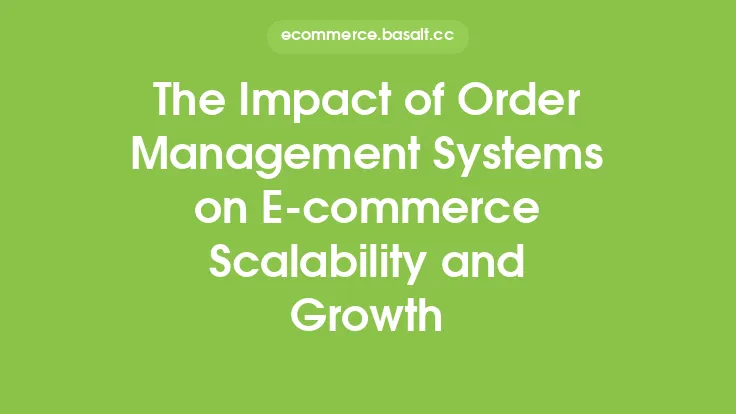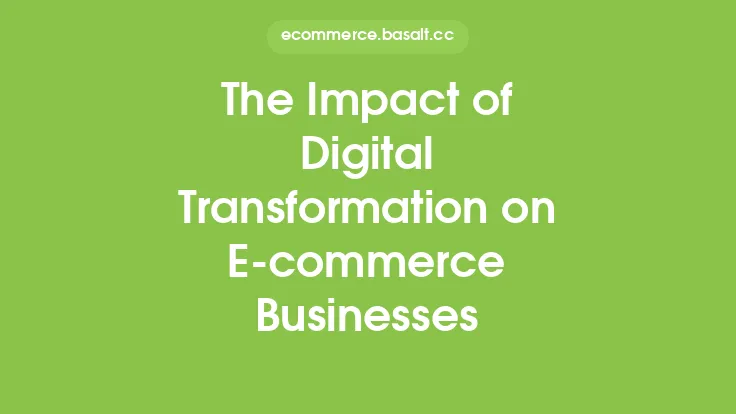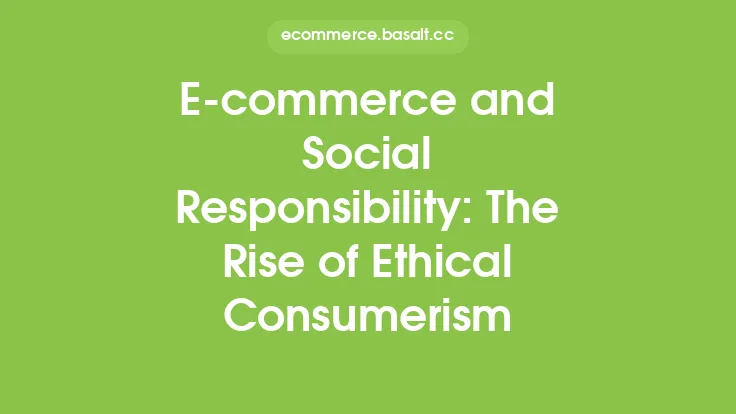The rise of e-commerce has transformed the way consumers shop, with online sales projected to continue growing in the coming years. As consumers become more environmentally conscious, they are increasingly expecting companies to prioritize sustainability and social responsibility. In response, e-commerce businesses are shifting their focus towards sustainable practices, which in turn is impacting consumer behavior. This shift is driven by the growing awareness of the environmental and social impact of consumerism, and the desire for more responsible and eco-friendly shopping options.
Introduction to Sustainable E-commerce
Sustainable e-commerce refers to the practice of reducing the environmental and social impact of online shopping. This can include using eco-friendly packaging, reducing energy consumption, and implementing socially responsible supply chain management. As consumers become more aware of the importance of sustainability, they are seeking out companies that prioritize these values. E-commerce businesses that adopt sustainable practices are not only reducing their environmental footprint but also attracting a growing demographic of consumers who prioritize social responsibility.
The Impact on Consumer Behavior
The impact of sustainable e-commerce on consumer behavior is multifaceted. Consumers are increasingly expecting companies to prioritize sustainability, and are making purchasing decisions based on a company's environmental and social track record. A recent survey found that over 70% of consumers consider the environmental impact of a product before making a purchase, and over 60% are willing to pay more for sustainable products. This shift in consumer behavior is driving e-commerce businesses to adopt sustainable practices, as they recognize the importance of appealing to this growing demographic.
Key Drivers of Sustainable E-commerce
There are several key drivers of sustainable e-commerce, including consumer demand, government regulations, and technological advancements. Consumer demand is a major driver, as consumers increasingly expect companies to prioritize sustainability. Government regulations, such as those related to packaging waste and carbon emissions, are also driving e-commerce businesses to adopt sustainable practices. Technological advancements, such as the development of eco-friendly packaging materials and renewable energy sources, are also playing a key role in the growth of sustainable e-commerce.
Benefits of Sustainable E-commerce
The benefits of sustainable e-commerce are numerous, and include reduced environmental impact, improved brand reputation, and increased customer loyalty. By adopting sustainable practices, e-commerce businesses can reduce their carbon footprint, minimize waste, and promote eco-friendly products. This not only benefits the environment but also enhances a company's brand reputation, as consumers increasingly view sustainability as a key factor in their purchasing decisions. Additionally, sustainable e-commerce practices can lead to increased customer loyalty, as consumers are more likely to return to companies that prioritize social responsibility.
Challenges and Opportunities
Despite the benefits of sustainable e-commerce, there are also challenges and opportunities that arise. One of the major challenges is the higher cost of sustainable practices, such as using eco-friendly packaging materials and renewable energy sources. However, this can also be seen as an opportunity, as companies that prioritize sustainability can differentiate themselves from competitors and attract a growing demographic of consumers who prioritize social responsibility. Another challenge is the lack of standardization in sustainable e-commerce practices, which can make it difficult for consumers to compare the environmental and social impact of different companies.
The Future of Sustainable E-commerce
The future of sustainable e-commerce is promising, as consumers continue to prioritize social responsibility and environmental sustainability. As technology continues to advance, we can expect to see even more innovative solutions to reduce the environmental impact of e-commerce, such as the development of biodegradable packaging materials and carbon offsetting programs. Additionally, governments are likely to implement more regulations related to sustainability, driving e-commerce businesses to adopt sustainable practices. As a result, sustainable e-commerce is likely to become the norm, rather than the exception, and companies that prioritize social responsibility and environmental sustainability will be well-positioned for success.
Conclusion
In conclusion, the impact of sustainable e-commerce on consumer behavior is significant, as consumers increasingly prioritize social responsibility and environmental sustainability. E-commerce businesses that adopt sustainable practices are not only reducing their environmental footprint but also attracting a growing demographic of consumers who prioritize these values. As the demand for sustainable e-commerce continues to grow, companies that prioritize social responsibility and environmental sustainability will be well-positioned for success. By understanding the key drivers, benefits, and challenges of sustainable e-commerce, businesses can make informed decisions about how to prioritize sustainability and appeal to the growing demographic of consumers who care about the environment and social responsibility.





